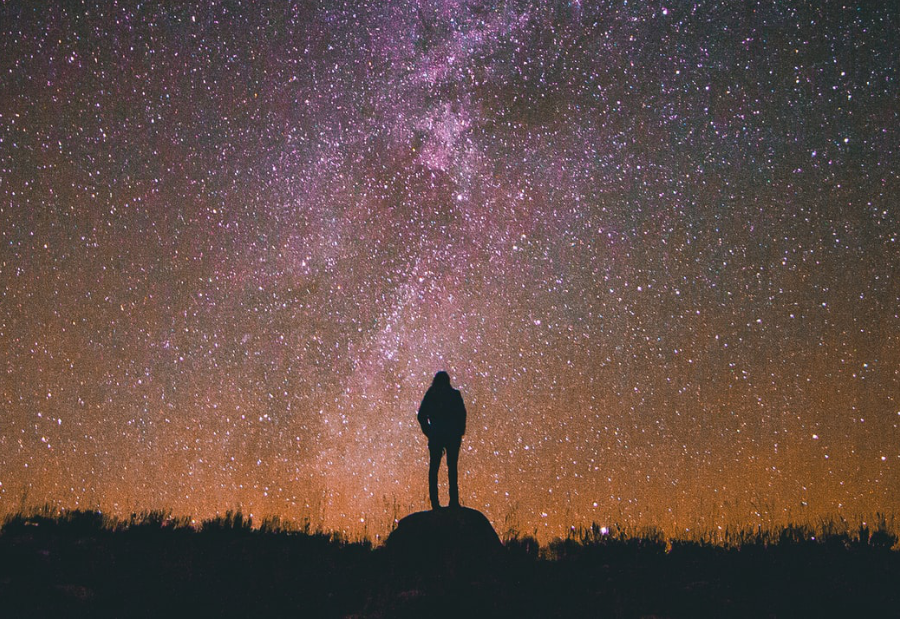A very old friend and longtime mentor of mine, now 85 years of age, recently expressed the gloomy opinion that Homo sapiens is ‘a failed species’. He spelled out what he meant. He believes that we are, taken as a whole, self-obsessed, given to war and over-consumption, reckless in our spoliation of the natural world, ruthlessly exploitative and lacking in compassion to one another and addicted to patterns of behaviour that demean us and leave our better possibilities to languish. The implication, which he was not hesitant in drawing, is that we are likely to become extinct in the foreseeable future and that we collectively deserve such a fate.
Is he correct? How can we reasonably draw up a balance sheet in this regard? What criteria should we use? What data counts? And what evaluative principles? I responded that his gloom was, from a certain point of view, understandable, but that there are other ways to look at the situation.
Seen in terms of the long arc of human affairs since the Palaeolithic, a case could surely be made that we have been an utterly extraordinary species. Our sheer inventiveness over the past 15,000 years or so is staggering. Our arts and sciences, too easily taken for granted, are astounding in their accomplishments. We have created huge societies in which the material standard of living and the longevity and the degree of law and order are simply incredible when compared with the tiny tribal orders of our ancestors.
Let’s begin with the question: what makes a species a success or failure? Is it the period of time for which it exists? Is it the extent to which it spreads around the world? Is it the sheer number of members who come into existence? Is it its capacity to continue evolving in the face of environmental challenges?
It may be worth bringing to mind that, according to biologists, some 30 billion species are thought to have existed since multicellular creatures first evolved during the Cambrian, half a billion years ago. Of those 30 billion species, it is estimated that 99.9 percent are already extinct. This means that – to crack a wry statistical joke – to a first approximation all species are already extinct. The average life-span for a species has been about four million years.
Have 99.9 percent of all species been failures, then? Surely, if extinction for a species is like mortality for individual beings, then going extinct is not a sign of failure but simply the nature of things.
In any case, we could comment that, while our genus – Homo – has been around for several million years, our species, Homo sapiens, has been around for only about 300,000 years, according to the latest findings. Should we assume that this means we are ‘likely’ to last another 3,700,000 years – on the law of averages – and therefore relax? Or should we, like my old friend, feel deep alarm at the possibility that we may prove to be one of the most ephemeral of species?
Surely, if extinction for a species is like mortality for individual beings, then going extinct is not a sign of failure but simply the nature of things.
There are two aspects to that question. First of all, are there good reasons for fearing that we may be bringing about our own extinction in a near time-frame, along with the so-called ‘Sixth Extinction’ (the latest in a long series of mass extinctions stretching back to the Ordovician mass extinction, 460 million years ago, and coming forward to the famous Cretaceous mass extinction 65 million years ago).
Second, even if that is so and, perhaps, now inescapable, does it mean we have failed as a species? This second question may sound counter-intuitive, but ask yourself this: If an individual human being – let’s say Franz Schubert – achieves dazzling things but dies much younger than the average life expectancy (he died aged 31 after composing 600 songs and 400 other musical works), does that make him a failure as a human being?
This second question is an important one for us, existentially. Another way to pose it is to ask, for example, how we rate the brief cultural efflorescence of classical democratic Athens (roughly 510 to 338 BCE) compared with the endless centuries of Egyptian (3200 to 30 BCE) or Chinese (226 BCE to 1912 CE) dynastic rule? Or how do we rate centuries of peace and stability in the Swiss Confederation – producing cuckoo clocks and chocolates – compared with the violence and corruption, but brilliant art, of the Italian Renaissance?
Decades ago, George Steiner’s little book In Bluebeard’s Castle made a powerful impression on me by posing this question in an unusually unapologetic way. It would be decades before I wrote a sustained critique of his book. For most of those years, I found many of his trenchant points immensely thought-provoking.
Writing in 1971, he expressed the opinion that we were, even then, living in apocalyptic times, with ecological stresses, nuclear terror and the surging reduction of human dreams to the findings of the hard sciences. Yet, he suggested, the stunning explosion of our material and performative cultures is our glory as a species, and we cannot turn back for the sake of mere species persistence.
His closing rhetorical proposition was: “We cannot turn back. We cannot choose the dreams of unknowing. We shall, I expect, open the last door in the castle even if it leads, perhaps because it leads, on to realities which are beyond the reach of human comprehension and control. We shall do so with that desolate clairvoyance, so marvelously rendered in Bartok’s music, because opening doors is the tragic merit of our identity.”
In this view of the world, the outstanding achievements of human culture rate more highly than the mass of human beings, their debased appetites or mundane concerns, and more highly, in the end, than the survival of the species in a merely biological sense.
It’s a Nietzschean perspective, as Steiner confessed. It flies in the face of democratic and humanistic assumptions. It is an Olympian view, so to speak, in which the ‘value’ of our species, having existed at all, is assessed aesthetically and the mass of ordinary mortals barely counts. Yet, it extols the best of humanity, not the worst. And he wrote what he did on the assumption, or at least under the apprehension, that collectively we were heading over a cliff. All that remained was a kind of stock-taking in what he dubbed “this cruel, late stage in Western affairs”.
When I wrote my critique of his argument in 2013 for my book Credo and Twelve Poems: A Cosmological Manifesto, it was a time when it seemed my own extinction might fast be approaching (I had just been diagnosed with metastatic cancer). I found that I disagreed with Steiner at many points. Above all, I argued that he had offered us a misleadingly binary choice between high achievement and the survival of the species. There are, I claimed, more than two options open to us in the situation in which we find ourselves. And Steiner had become too subject to his metaphor derived from Bartok’s dark opera. In fact, the sciences, I insisted, both make it possible for us to see the problems we face and offer methods and tools for addressing them.
How do we even know about Deep Time and the evolution of life on Earth? Through the modern sciences. How have we been able to establish global communications and astonishing data bases? Through the modern sciences. How have we been able to modify and monitor our uses of energy sources and begin inventing new ones with astounding verve and at breakneck speed? Through the modern sciences. How have we both extended massively our production of food and materials for our species, as our species grew fourfold in number within a century, while also grappling with the impact this has been having on soils, air, water systems and public health? Through the modern sciences. How have we been able to map the human genome itself and make inroads into all manner of diseases and genetic afflictions that plague our species? Through the modern sciences.
None of those achievements constitutes failure in any meaningful sense of the term. Are we, nonetheless, doomed to ‘failure’ in the basic sense of triggering and suffering our demise in the Sixth Extinction? Possibly.
Yet, to be fatalistic in this regard would surely be premature and unscientific. Innovation is happening at a rapid rate and it is by no means inevitable that the problems we see immediately ahead of us will overwhelm us. But even should they do so, to see this as species failure in and of itself would be to overlook the points I made earlier in this brief essay. We have been a spectacular species, breaking new ground in every direction, and nothing can take that away from us.
Here’s a way to think about our prospects in terms of a different metaphor from the one Steiner used half a century ago. Consider that, in just the past century or so, millions of human beings have become skiers, mountain climbers, risk takers in the wild or at extreme sports. Imagine, then, that we, as a species, are such adventurers and we have set out collectively, like George Mallory and his colleagues in the early 1920s, to climb to the summit of the most daunting of pinnacles. They attempted Mount Everest. They were thwarted three times, and Mallory died on the third attempt. We, as a species, have been scaling breathtaking heights for millennia now. Question: if we do collectively fall, like Mallory, will that mean we were a ‘failed species’ – or a bold and amazing one?
Photo by Greg Rakozy on Unsplash.



